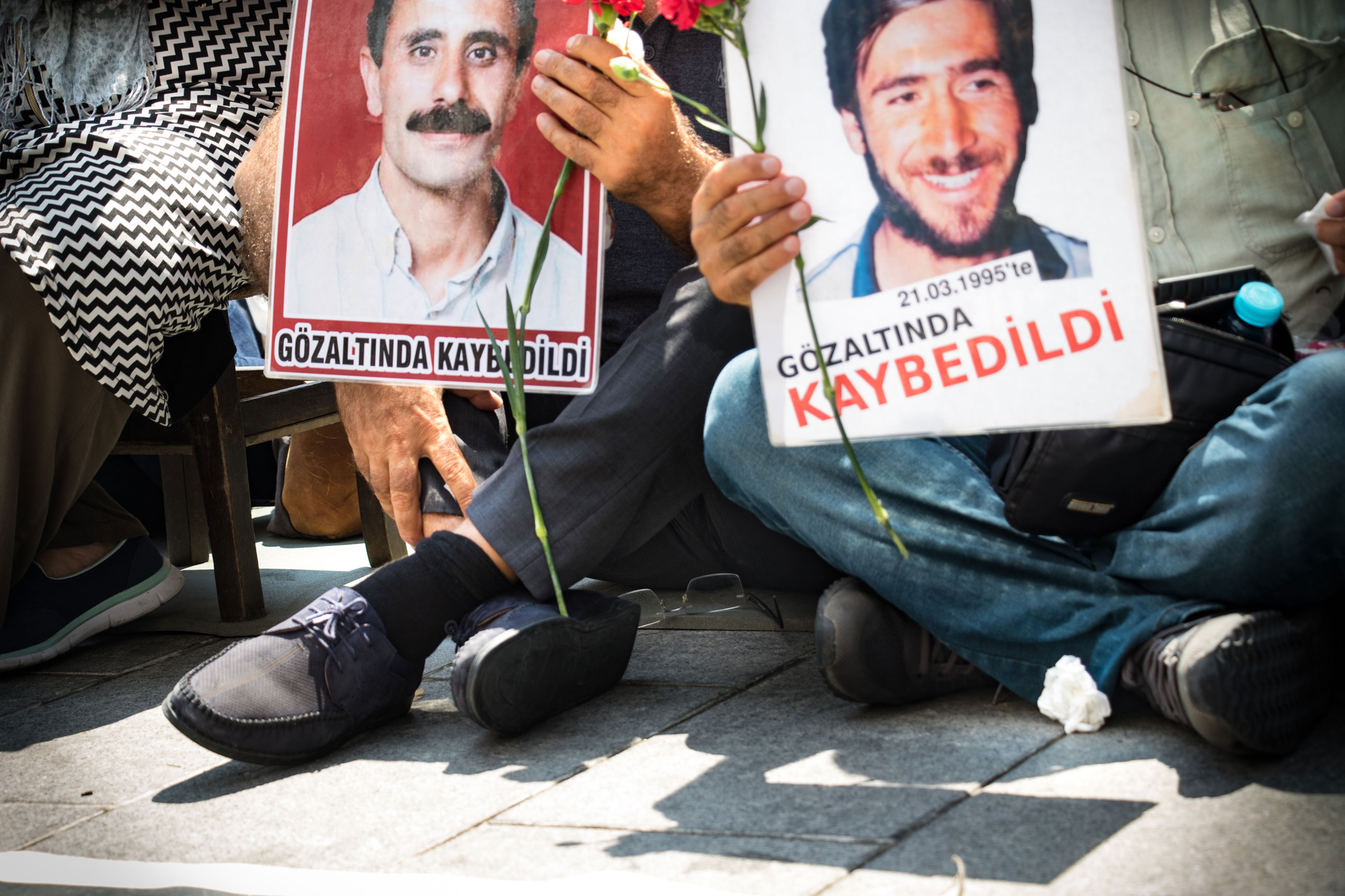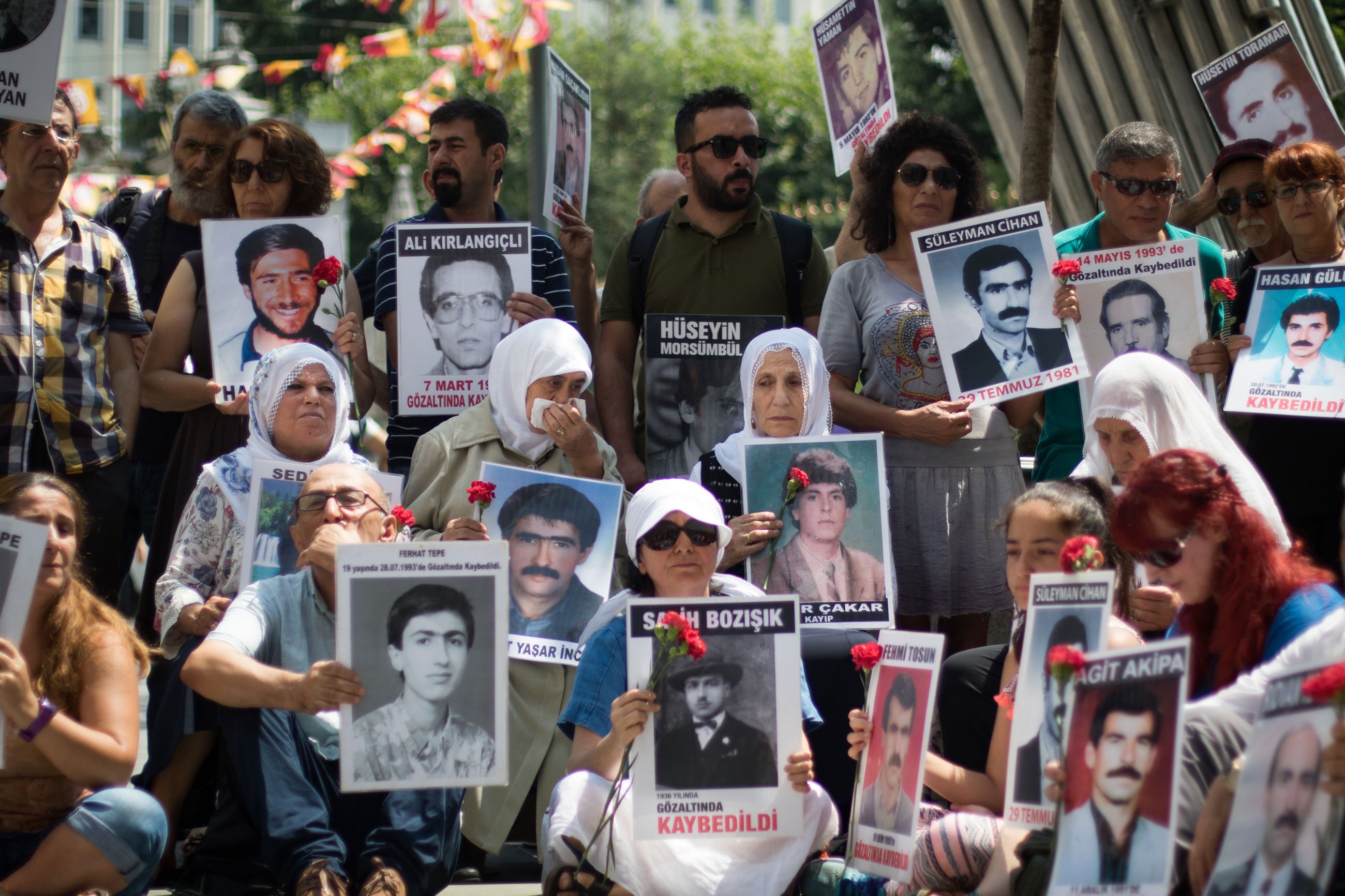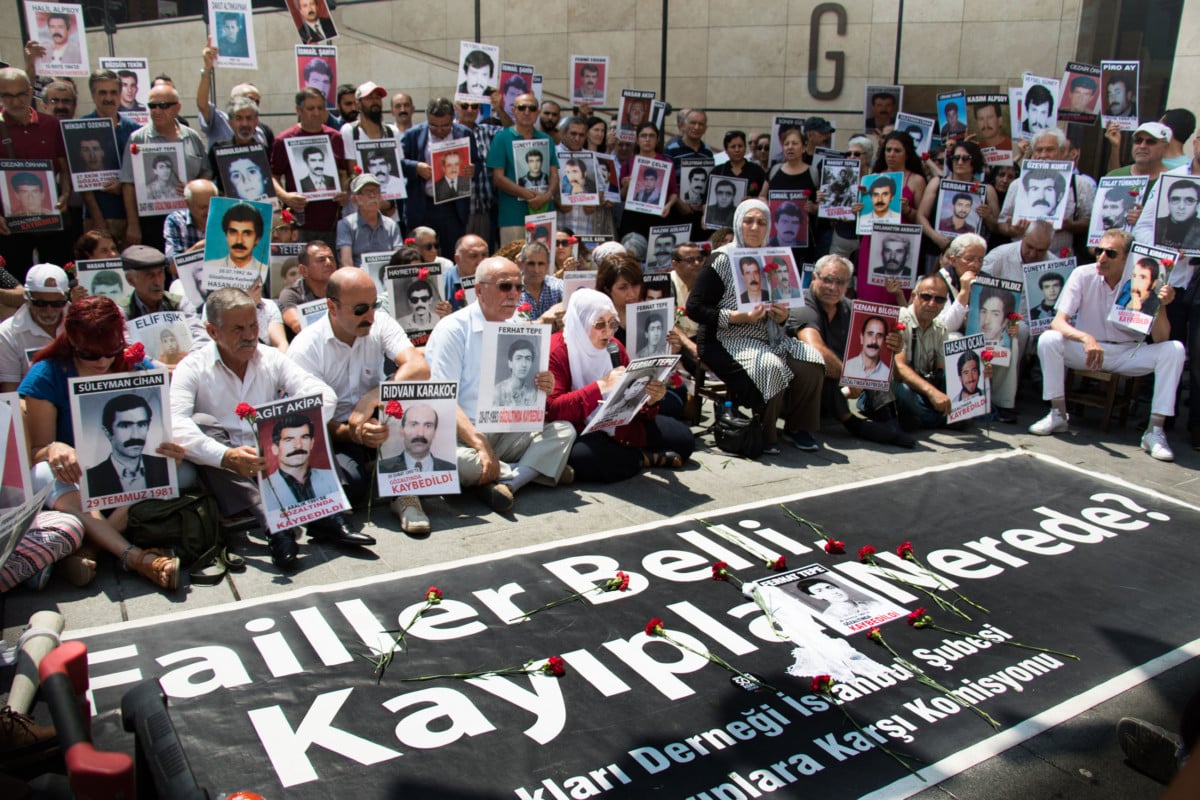An 82-year-old mother was dragged away as sirens diluted the sound of coughing from tear gas while police fired plastic bullets and citizens were arrested at what was supposed to be the 700th peaceful gathering of the Saturday Mothers in Istanbul, Turkey, on August 25, 2018.
The Saturday Mothers have gathered at Galatasaray Square since 1995, demanding recognition of the state’s role in the forced disappearances of their loved ones. Many of those who disappeared were activists, labor leaders and political organizers.
According to Sebla Arcan, a member of the Istanbul chapter of the Human Rights Association’s Commission Against Disappearances Under Custody, forced disappearances in Turkey peaked in 1995, with 500 claims of missing people filed to the government that year. Arcan says it was not uncommon for someone to be taken into custody by police to disappear and never be heard from again. According to Arcan, who was detained Saturday, family members who complained or inquired about their missing relatives were also at risk. “Some who were looking for their disappeared relatives disappeared themselves while trying to find them.”
Maside Ocak, another organizer who was detained Saturday, has been demonstrating since 1995. “What brought us together was that we had no tolerance left anymore.” Maside’s brother, Ali Ocak, explained the importance of these sittings: “We’ve lost our jobs, our health, our brothers and sisters, but the solidarity here is what keeps us going. It’s the only thing we have.”

As the friends and relatives of the disappeared kept returning each week, violence from the police ensued. For months, mothers with fresh wounds would return the next week, enduring new wounds before the old ones could heal. With each passing Saturday, other mothers joined with photos of their disappeared children.
Many of these mothers have now passed away, but one of the few who remain faced the same kind of violence last Saturday. Eighty-two-year-old Emine Ocak is the mother of Hasan Ocak, who disappeared in 1995 at the age of 30. She was also arrested on Saturday. Hasan’s family began an intense search that would initiate the Saturday Mothers movement.
The Ocaks turned to the press and human rights activists. They went to Istanbul’s Parliament, to Ankara, and carried out several actions of civil disobedience. Every day, the family searched for Hasan’s body at the morgue where unidentified bodies were taken. During one of their searches at the morgue, they found a file on a desk that contained photographs which resembled Hasan. His family learned that he was taken into custody by police on March 21, 1995, where he was fingerprinted. According to the file the family had found, he had been killed on March 26, 1995. His body was discarded in a forest, where it was later found and classified as an unidentified person. Hasan’s brother Ali recalled, “By matching his fingerprints with the fingerprints in that file, we identified that it was Hasan.”

For 700 Saturdays, crowded Galatasaray Square has been a makeshift cemetery for these families. Mothers carefully choose their outfits. For them, it is their time to spend with their disappeared children. Sons and daughters communicate with their disappeared fathers. One daughter announced, “Father, I became a lawyer.”
But on August 25, 2018, their solidarity, their sacred cemetery, was disrupted with tear gas and water cannons. And despite a government ban on the Saturday gatherings, the families of those still missing are determined to meet again.
Editor’s note: August 30 marks the International Day of the Disappeared.
We’re not backing down in the face of Trump’s threats.
As Donald Trump is inaugurated a second time, independent media organizations are faced with urgent mandates: Tell the truth more loudly than ever before. Do that work even as our standard modes of distribution (such as social media platforms) are being manipulated and curtailed by forces of fascist repression and ruthless capitalism. Do that work even as journalism and journalists face targeted attacks, including from the government itself. And do that work in community, never forgetting that we’re not shouting into a faceless void – we’re reaching out to real people amid a life-threatening political climate.
Our task is formidable, and it requires us to ground ourselves in our principles, remind ourselves of our utility, dig in and commit.
As a dizzying number of corporate news organizations – either through need or greed – rush to implement new ways to further monetize their content, and others acquiesce to Trump’s wishes, now is a time for movement media-makers to double down on community-first models.
At Truthout, we are reaffirming our commitments on this front: We won’t run ads or have a paywall because we believe that everyone should have access to information, and that access should exist without barriers and free of distractions from craven corporate interests. We recognize the implications for democracy when information-seekers click a link only to find the article trapped behind a paywall or buried on a page with dozens of invasive ads. The laws of capitalism dictate an unending increase in monetization, and much of the media simply follows those laws. Truthout and many of our peers are dedicating ourselves to following other paths – a commitment which feels vital in a moment when corporations are evermore overtly embedded in government.
Over 80 percent of Truthout‘s funding comes from small individual donations from our community of readers, and the remaining 20 percent comes from a handful of social justice-oriented foundations. Over a third of our total budget is supported by recurring monthly donors, many of whom give because they want to help us keep Truthout barrier-free for everyone.
You can help by giving today. Whether you can make a small monthly donation or a larger gift, Truthout only works with your support.
